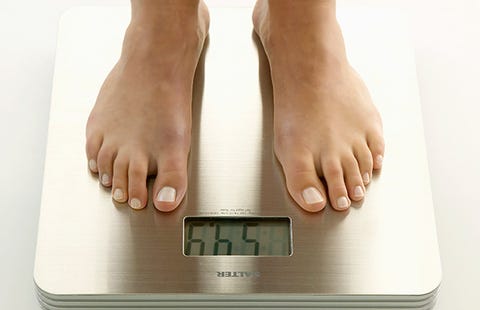Jack's Urban Eats Weight Watchers Points
Even though we constantly hear about the importance of eating a balanced breakfast for reduced cravings and cognitive performance, the truth is, skipping your morning meal can still be tempting when you're trying to lose weight fast. The fewer calories in, the slimmer you'll be—right? Turns out, the math doesn't quite work out.
A new study published in the American Journal of Clinical Nutrition has found that obese adults who skip breakfast burn fewer calories throughout the day than their breakfast-eating counterparts—and end up compensating for their morning fast by eating more food later. (Get a flat belly in just 10 minutes a day with our reader-tested exercise plan!)
Researchers split 23 obese adults into two groups: One that ate a breakfast of at least 700 calories every day for 6 weeks, and another that fasted until noon. The participants were told to conduct their lives as normal—no additional exercise and no restricting their eating. They also wore special heart rate monitors to consistently track the number of calories they burned. (Here's how to start walking when you have 50+ pounds to lose.)
After 6 weeks, the breakfast eaters burned an average of 188 more calories per day from physical activity—not because of any dedicated exercise, but mostly from low-intensity, everyday activities, like cooking and cleaning, the researchers say. Essentially, eating breakfast appears to have spurred more everyday movement, resulting in greater calorie burn.
MORE: 11 Eating Rules To Rev Your Metabolism All Day Long
The fasting group, on the other hand, made up for their skipped meal by eating about 550 more calories in the second half of the day than the breakfast eaters did (a phenomenon known as compensatory eating). This effect has been observed before, too: A Harvard School of Public Health study found that breakfast skippers were hungrier and ate more food at night than habitual breakfast eaters (FYI: The abstainers also had a 27% higher risk of heart disease.)

Robbert Koene/getty images
In this study, breakfast eaters didn't actually lose weight—in fact, none of the participants did. But that's kind of the shocking thing: "I think many people may be surprised to see that the fasting group—who did not consume a single calorie until midday everyday for 6 weeks—did not lose any weight at all," says lead author James Betts, PhD, associate professor of nutrition and metabolism at the University of Bath.
So no, eating breakfast isn't a weight loss silver bullet. But the science shows that skipping it probably won't do you much good, either.
But how much should you realistically be eating if you do want to prime yourself for weight loss and generally feel awesome? As we've previously reported, for optimal satiety and energy to help you power through your day and workouts, your breakfast should be about the same size, calorically, as your lunch or dinner. For the average active woman in her 40s or 50s, that means around 400 calories for breakfast, 400 for lunch, 500 for dinner, as well as another 300 total for snacks, treats, and a glass of wine.
This content is created and maintained by a third party, and imported onto this page to help users provide their email addresses. You may be able to find more information about this and similar content at piano.io
Jack's Urban Eats Weight Watchers Points
Source: https://www.prevention.com/food-nutrition/a20509039/the-crazy-way-eating-more-wont-make-you-gain-weight/


0 Comments